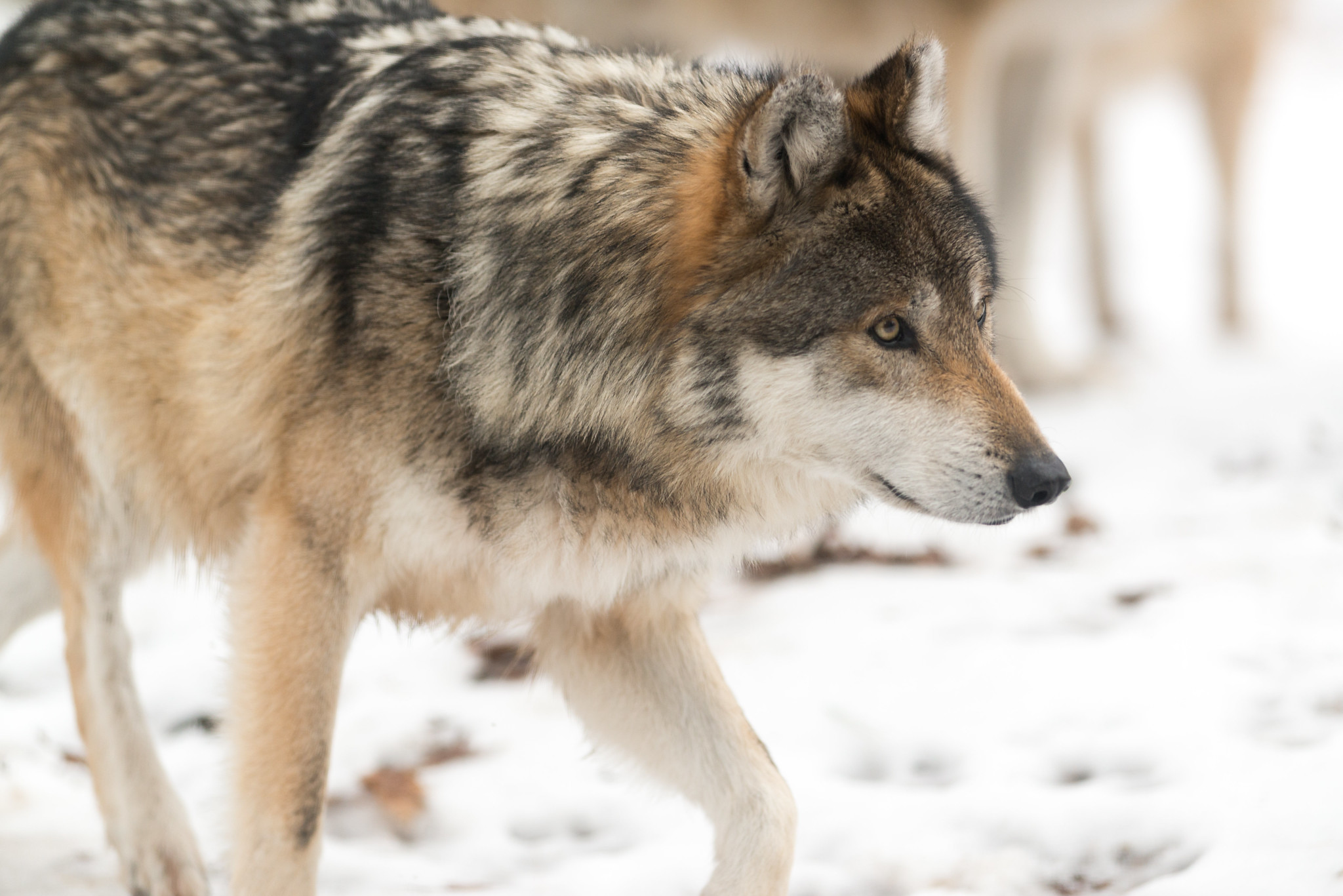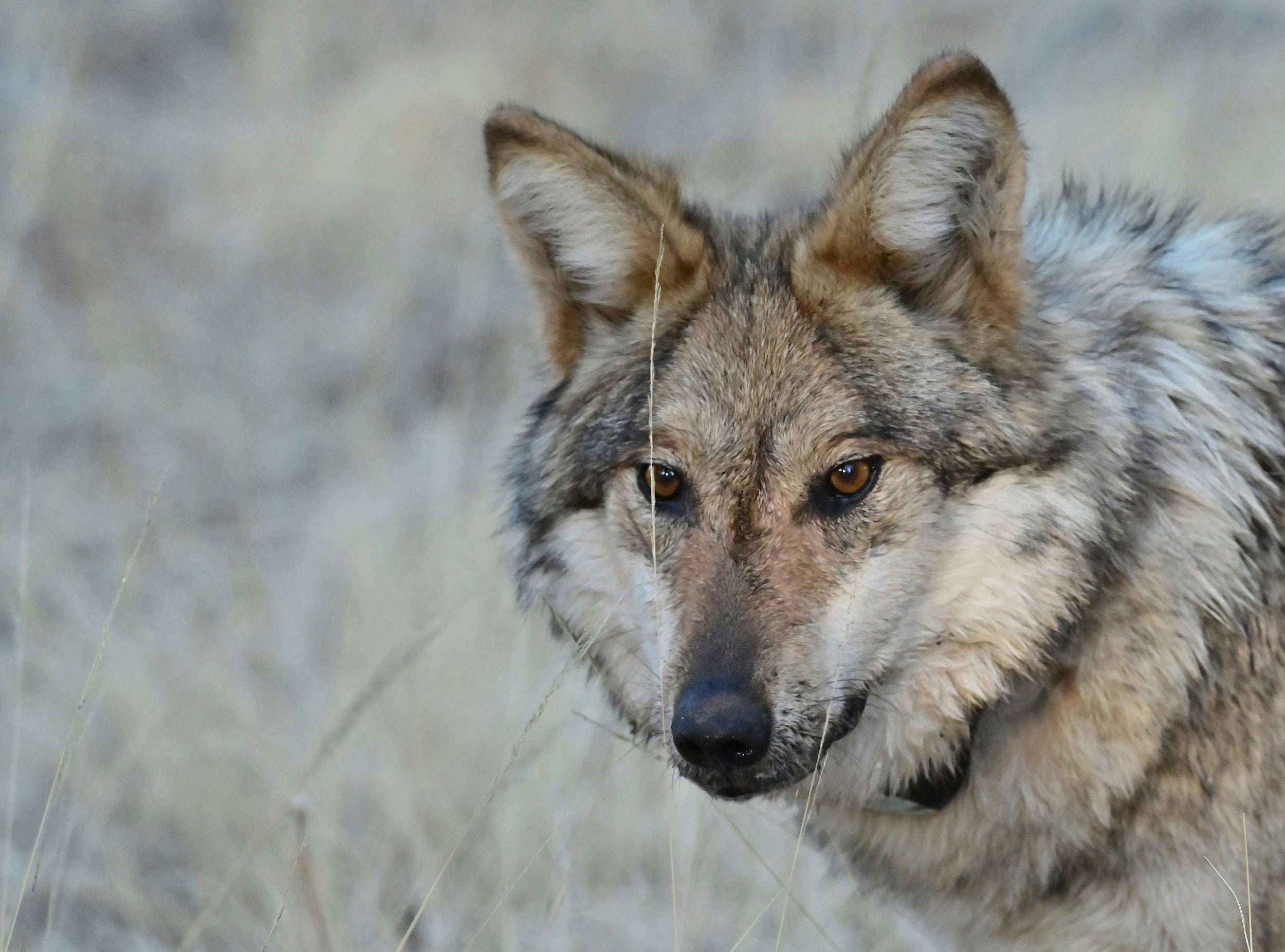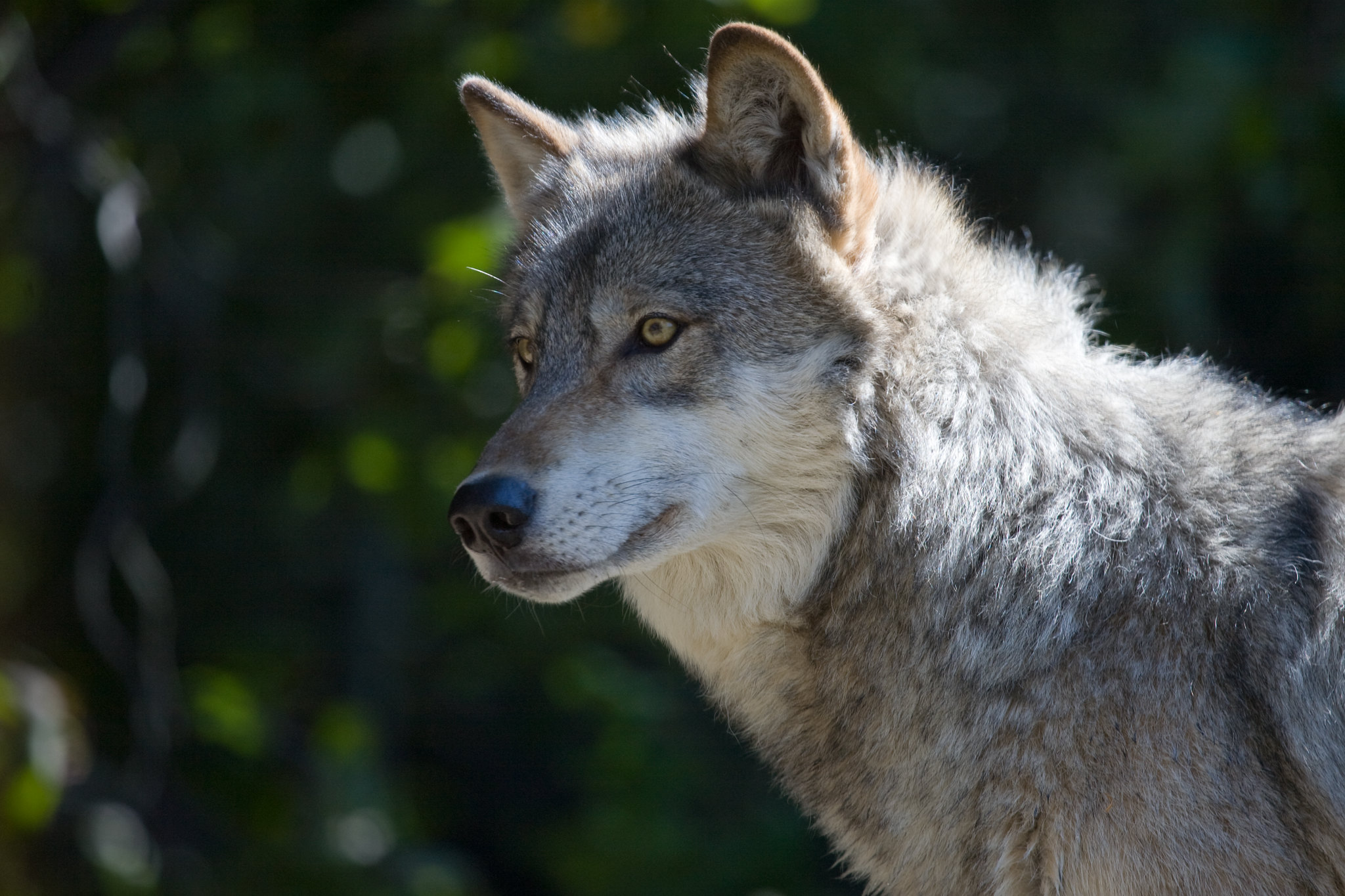Six Ojibwe tribes in Wisconsin are opposing legislation introduced by U.S. Sens. Ron Johnson and Tammy Baldwin to delist the gray wolf in the Western Great Lakes region and Wyoming.
The tribes sent a letter Wednesday to Wisconsin’s U.S. Senate Delegation Wednesday, and it was signed by the Bad River, Lac Courte Oreilles, Lac du Flambeau, Red Cliff, Sokaogon Chippewa and St. Croix Chippewa tribes.
The tribes said neither Baldwin nor Johnson discussed the bill with tribes and how it may affect their federal tribal treaty rights.
News with a little more humanity
WPR’s “Wisconsin Today” newsletter keeps you connected to the state you love without feeling overwhelmed. No paywall. No agenda. No corporate filter.
“Gray wolves deserve continued protection under the Endangered Species Act and a reprieve from the political infighting that continues to put them in jeopardy,” said Gussie Lord, an attorney for Earthjustice representing the tribes in a statement. “Wisconsin has already demonstrated its inability to properly manage the state’s wolf population, and this legislation would ensure another brutal hunt for this keystone species.”
In the letter, tribes pointed to the 2021 February wolf hunt where state-licensed hunters killed 218 wolves in less than three days during the wolf’s breeding season. They highlighted the number of wolves harvested went beyond state-licensed hunters’ portion and the tribes’ portion of a 200-wolf quota. Tribes have declined to harvest wolves because they view the animal as a brother.
“You can’t just go out there and kill a female that might be carrying three or four or five pups. You’re just damaging the ecosystem,” said Lac du Flambeau President John Johnson, Sr.
Johnson and members of other tribes have said the state is disregarding tribal wolf protection and management. Johnson would like the two lawmakers to come to Indian Country to discuss their treaty rights. He said Johnson’s office has reached out to meet since receiving the letter, but he hadn’t yet heard from Baldwin’s office.
“The state can do whatever they want to us, and now the feds can do it. And so we have two entities making all our decisions,” said Johnson. “But at that roundtable, we should be there helping them.”
Wisconsin’s Natural Resources Board approved a quota of 300 wolves for a wolf hunt that was planned to be held last fall, but the board’s current chair Greg Kazmierski had proposed a harvest as high as 500 wolves during discussion.
That hunt was put on hold last fall after a Dane County judge sided with wildlife advocacy groups that sued to stop the hunt. Those groups alleged the hunt was unconstitutional and that the Wisconsin Department of Natural Resources failed to craft permanent rules to carry out state law that mandates a season. Tribes had also filed a lawsuit to halt the state’s wolf hunt, arguing it violates their treaty rights. In February, a federal judge restored protections for gray wolves across most of the country, including Wisconsin.
Representatives for the two lawmakers didn’t immediately respond to requests for comment Thursday. Baldwin and Johnson have said that the wolf population has recovered.
“Wisconsinites must have a say in the management of gray wolves,” said Johnson in a statement introducing the legislation. “In the western Great Lakes region, state wildlife agencies should manage the recovered population so the wolf’s ongoing role in the ecosystem does not come at the expense of farmers, loggers, sportsmen and people who simply live in these areas.”
Baldwin has said the bipartisan bill “is driven by science and is focused on delisting in the Great Lakes region, including Wisconsin.”
Not all scientists in Wisconsin agree that the wolf population has recovered, representing a divide over wolf conservation and management.
DNR data shows Wisconsin’s wolf population has more than quadrupled over the last two decades to roughly 1,100 wolves last year prior to the February wolf hunt.
The letter comes as most people who took part in spring hearings held by the Wisconsin Conservation Congress say they support limiting the state’s population to 350 wolves.
The Wisconsin Conservation Congress is a citizens group that advises the DNR and Natural Resources Board on policy regarding natural resource issues and surveys people’s opinions on items each spring.
Of Wisconsin residents who took part, the results show 12,978 people support a wolf population of 350 wolves while 6,410 said they oppose that number. There were 2,277 people who said they had no opinion on the matter.
Mike Brust, legislative liaison with the Wisconsin Bowhunters Association, said he supports legislation to remove federal protections for wolves.
“They’ve expanded into a lot of farming areas and semi-rural area, and they’re creating a lot of problems for pet owners and livestock owners and farmers. It’s evident in the spring hearing vote,” said Brust.
Hunters and farmers have pointed to increasing conflicts between wolves, pets and livestock, though the number of livestock killed by wolves makes up a fraction of the state’s 3.45 million cattle.
The DNR is currently revising its wolf management plan, which was first written in 1999 and last updated in 2007. That plan includes a management goal of 350 wolves for the state. Hunters and farmers have supported the existing plan while wildlife advocacy groups, conservationists and tribes have argued it’s vastly outdated and not based on the best available science.
More than half of participants also opposed banning the use of dogs to hunt wolves with 9,573 state residents opposed and 9,137 residents in support of a ban. There were 2,526 residents who had no opinion.
Wisconsin is the only state that allows using dogs to hunt wolves when the animal isn’t under federal protection.
Wisconsin Public Radio, © Copyright 2025, Board of Regents of the University of Wisconsin System and Wisconsin Educational Communications Board.





